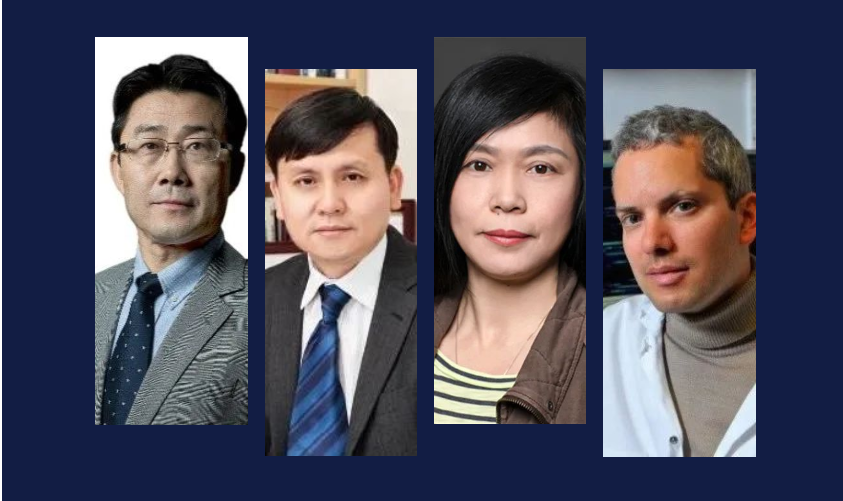Monkeypox Symposium –Towards Preparedness of Disease Control and Basic Research
On July 23, the World Health Organization (WHO) announced that the monkeypox epidemic in multiple countries and regions constituted a "Public Health Emergency of International Concern" (PHEIC). On August 4, the United States also declared a public health emergency in response to the monkeypox epidemic.
The monkeypox epidemic poses a new threat and challenge to public health. Currently, no cases of monkeypox virus infection have been found in Mainland China. However, given that monkeypox virus is rapidly spreading around the world, it is urgent to start targeted research and prepare for the control and prevention of this pathogen in a timely manner.
In order to strengthen academic exchange and discussion, to promote an active response to changes in the epidemic, and to effectively prevent and control epidemic diseases in a scientific manner, Institut Pasteur of Shanghai of Chinese Academy of Sciences, the Virology Division Committee of Shanghai Society of Microbiology, the Medical Virology Branch of Shanghai Medical Association, Alliance of International Science Organization - Alliance for Infectious Diseases (ANSO-AID) and the CAS Key Laboratory of Molecular Virology and Immunology jointly held the "Monkeypox Symposium – Towards Preparedness of Disease Control and Basic Research". Prof. George Fu GAO, academician at the Institute of Microbiology of CAS Prof. Wenhong ZHANG, director of the Department of infection of Huashan Hospital Affiliated to Fudan University, Prof. Xiaozhen LIANG and Prof. Nicolas BERTHET (of CMDH), principal investigators at Institut Pasteur of Shanghai were invited to give a lecture at this symposium. They introduced the current situation and challenges in the control and prevention of the monkeypox epidemic from the perspectives of basic research, history, epidemiology and transmission, and clinical diagnosis.
The online symposium kicked off together with around 1,000 audiences with opening speeches from various perspectives by Shengli SI, Secretary of the Party Committee CCP and Deputy Director of the Institut Pasteur of Shanghai, Zhenghong YUAN, Chairman of the Shanghai Society of Microbiology, and Youhua XIE, Chairman of the Medical Virology Branch of the Shanghai Medical Association.They stated that the Chinese professionals have been paying close attention to the development of the monkeypox epidemic and unremittingly diving in relevant research.
Academician George GAO pointed out in his report lecture that novel and (re)-emerging infectious diseases, including influenza viruses and novel coronaviruses, constantly impact and threaten human health, and pose a major threat to global public health. He summarized the current situation of monkeypox epidemic worldwide, put forward corresponding public health response strategies, and discussed preparations for the possible imported cases in the future. He believes that maintaining a high degree of vigilance, strict monitoring and providing timely warning are still the best control-prevention strategies at present, which will also help researchers to develop countermeasures against monkeypox virus and gain valuable time for combating the global epidemic.
Professor BERTHET introduced the history of monkeypox virus and shared his experience in conducting monkeypox research in Central African Republic. He went that monkeypox has always been a neglected disease for a long time, because most cases were regionally limited to the African continent. However, since May 2022, a monkeypox strain belonging to the West African clade has spread on a large scale in many countries. He discussed the possible reasons for the global spread of the monkeypox epidemic. His hands-on research experience and ideas have provided important assistance for the further in-depth research of monkeypox virus and the prevention of the epidemic spread.
Professor LIANG systematically introduced the basic research progress of monkeypox virus life-cycle and animal model. She stated that more scientific research resources and forces should be invested in studying the molecular mechanism of monkeypox virus infection and host immune responses to promote more in-depth research.
Professor ZHANG, Director of the Infection department at Huashan Hospital Affiliated to Fudan University, briefed in detail the clinical characteristics of the global monkeypox epidemic. He put that from the perspective of suspected transmission routes of infection, over 90% of the cases were thought to be caused by close sexual contact. From the clinical characteristics, almost all cases have skin rash or lesions, and 60% of cases have fever and lymph node enlargement. He said that currently there are no confirmed cases in mainland China, but that this outbreak of monkeypox is different from previous sporadic outbreaks, and there is a risk of imported cases to China. Moreover, this risk increases with the rise of global case numbers. Therefore, vigilance is needed to prevent the spread of this disease in China.
After these lectures, the four speakers and other scholars held an in-depth round-table discussion on the basic research and control and prevention strategies of monkeypox, and answered some pressing questions from the audience.
The "Monkeypox Symposium – Towards Preparedness of Disease Control and Basic Research" was a success and has further enriched the understanding of the academic community and the general public on the monkeypox epidemic, putting forward ideas for curbing its spread. The symposium not only helped promote the scientific research and clinical diagnosis and treatment of monkeypox, but also helped enhance the public's awareness and importance of active and effective epidemic prevention.

